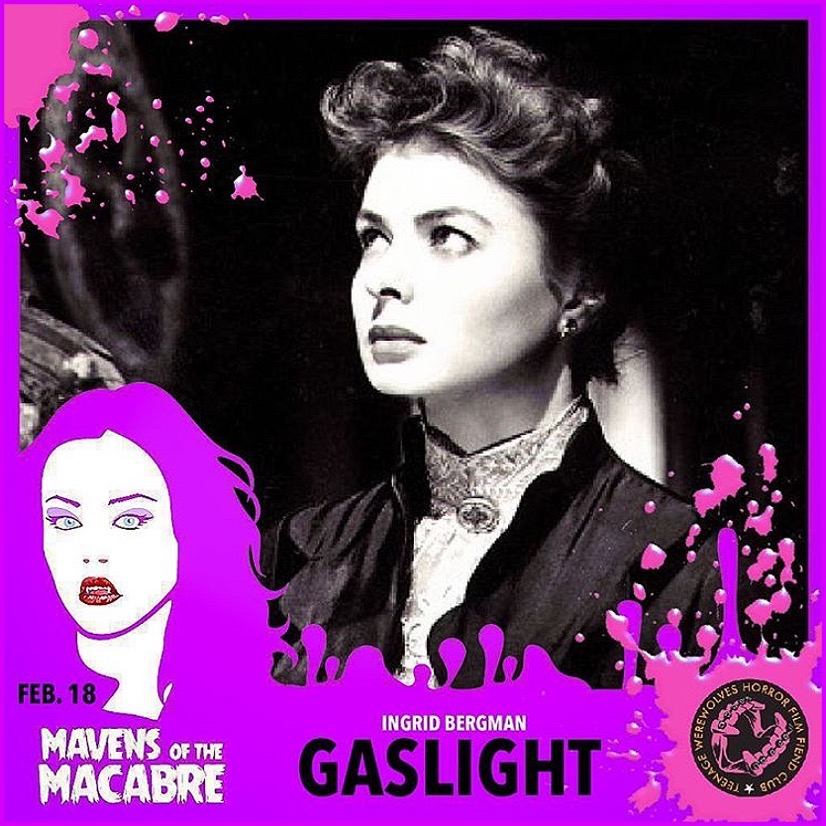(George Cuckor, 4 May 1944)
“That house comes into my dreams sometimes – a house of horror. Strange – I haven’t dreamed of it since I’ve known you. I haven’t been afraid since I’ve known you.”
For today’s installment of our month-long MAVENS OF THE MACABRE series celebrating some of our favorite films (several of which tend to be lesser-celebrated titles) featuring dynamic female characters — compelling women of the genre, whether protagonist or antagonist — we decided to delve into what is, for many, merely a horror-adjacent film and yet one that potently deals with an everyday, visceral horror: the 1944 production of GASLIGHT.
Adapted from Patrick Hamilton’s 1938 stage play, this George Cuckor production from a screenplay written, in part, by John L. Balderston (DRACULA, THE MUMMY, MAD LOVE, THE BRIDE OF FRANKENSTEIN, as well as an early draft of the original FRANKENSTEIN) and starring Ingrid Bergman, Charles Boyer, and Joseph Cotton, explores within its plot of murder, insanity, intrigue, and flickering lamplights (either real or imagined), a very different horror, a very different form of abuse. In a psychological and emotional approach which takes its name from the play (and subsequent Academy award-nominated film), an individual — often with Narcissistic Personality Disorder, and seemingly almost always a male — controls his partner by manipulating, hiding, and distorting facts. Victims then become confused and disoriented as their reality is altered in mind-bending ways, resulting in the doubting of one’s narrative, of one’s own sanity; it is a construct of overt control and a dissolving sense of resolve. Ingrid Bergman’s Paula Alquist Anton finds herself in this very scenario, eventually isolated from the outside world (and her own sense of self) forced to face the very real possibility that she is losing her mind. Saying anything more is to do an injustice to the film’s palpable potency, considering we’re fairly sure there is a major contingency within the community that have yet to see this film. True, it is not horror in the traditional sense, but as we get closer to the release date of Leigh Whannel’s THE INVISIBLE MAN reimagining, there may be renewed interest in THIS classic film as the details of the plot suggest Elizabeth Moss’ character struggles with her sanity and a violent, invisible, gaslighting ex: Dr. Griffin.

